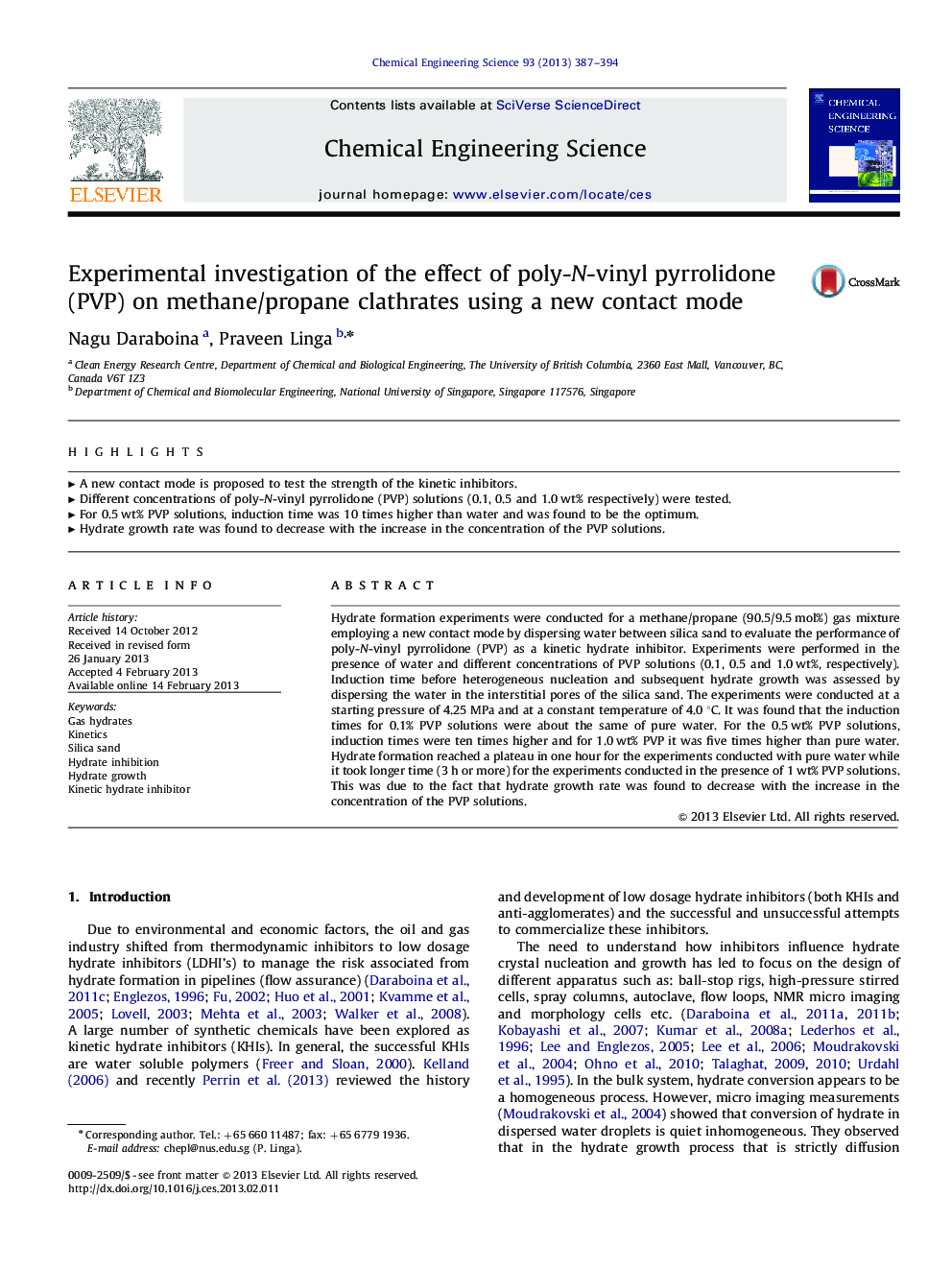| Article ID | Journal | Published Year | Pages | File Type |
|---|---|---|---|---|
| 155352 | Chemical Engineering Science | 2013 | 8 Pages |
Hydrate formation experiments were conducted for a methane/propane (90.5/9.5 mol%) gas mixture employing a new contact mode by dispersing water between silica sand to evaluate the performance of poly-N-vinyl pyrrolidone (PVP) as a kinetic hydrate inhibitor. Experiments were performed in the presence of water and different concentrations of PVP solutions (0.1, 0.5 and 1.0 wt%, respectively). Induction time before heterogeneous nucleation and subsequent hydrate growth was assessed by dispersing the water in the interstitial pores of the silica sand. The experiments were conducted at a starting pressure of 4.25 MPa and at a constant temperature of 4.0 °C. It was found that the induction times for 0.1% PVP solutions were about the same of pure water. For the 0.5 wt% PVP solutions, induction times were ten times higher and for 1.0 wt% PVP it was five times higher than pure water. Hydrate formation reached a plateau in one hour for the experiments conducted with pure water while it took longer time (3 h or more) for the experiments conducted in the presence of 1 wt% PVP solutions. This was due to the fact that hydrate growth rate was found to decrease with the increase in the concentration of the PVP solutions.
► A new contact mode is proposed to test the strength of the kinetic inhibitors. ► Different concentrations of poly-N-vinyl pyrrolidone (PVP) solutions (0.1, 0.5 and 1.0 wt% respectively) were tested. ► For 0.5 wt% PVP solutions, induction time was 10 times higher than water and was found to be the optimum. ► Hydrate growth rate was found to decrease with the increase in the concentration of the PVP solutions.
